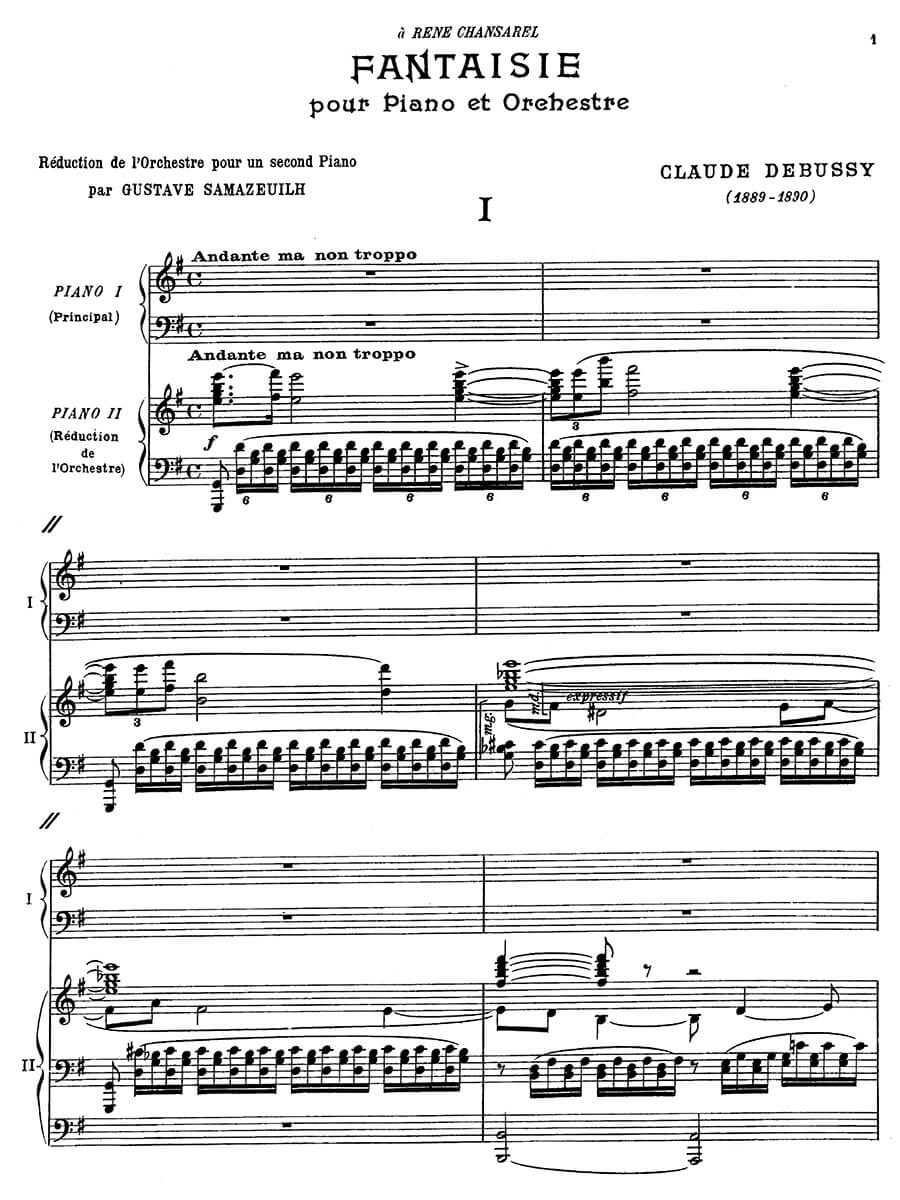Fantaisie pour piano et orchestre (Piano reduction, 2 copies)
Debussy, Claude
28,00 €
Preface
Debussy, Claude – Fantaisie pour piano et orchestre (Piano reduction, 2 copies)
For more information about the piece read the preface of the full score:
Preface
Neither published or performed during his lifetime, Claude Debussy maintained a capricious attitude towards the Fantaisie pour piano et orchestra up until his death at age 55 in Paris, 1918. In October 1889 at the age of 27, he began sketching what was to be his first and only work for piano and orchestra. This Fantaisie would also remain his only composition with such a title. The three-movement work is particularly remarkable for its cyclical treatment of limited thematic material and for the extent to which the piano is integrated into the ensemble.
Even as one of his earliest large-scale forays into orchestral writing, the Fantaisie exemplifies Debussy’s command of the orchestra. It demonstrates the unmistakable promise of the young composer’s capacity to exact vivid timbres from the orchestra. Further to a thorough exploration of dynamic and pitch ranges, Debussy finds unique instrumental pairings to accompany and reiterate the primary cyclical theme. This theme — heard at the outset in the oboe — cycles throughout the first movement under different timbral guises. The slow movement offers a pensive contrast to the more lively opening and closing movements. Rather unusually, this second movement extends seamlessly into the third, where the primary theme re-emerges surreptitiously in the lower strings (played pizzicato) before triumphant restatements across the ensemble for the finale.
Debussy started writing the Fantaisie pour piano et orchestre during a transitional period in his compositional development. He had been a student at the Paris Conservatoire since the age of ten. So by 1889, Debussy was attempting to shake the conventions of his conservatoire training as he began to forge a career as a veritable composer. This was no easy task given how he was still emerging from the expectations of the Société Nationale de Musique who, in 1884, had awarded him the illustrious Prix de Rome as a composition student of the Conservatoire. The terms of this residency at Rome’s Villa Medici required four ‘envois’ to be submitted to the Société. Instead of the expected concerto, Debussy wrote a ‘fantasie’ (literally ‘fancy’). The overdue Fantaisie was intended to be Debussy’s fourth envoi, however he failed to submit it. Nevertheless when he did complete the Fantaisie (which otherwise behaves much like a concerto), it was under the baton of the Société’s president, Vincent d’Indy, that the piece was to be premièred at a showcase on 21 April 1890. …
Read more > HERE
Score Data
| Edition | Repertoire Explorer |
|---|---|
| Genre | Keyboard & Orchestra |
| Size | 225 x 320 mm |
| Specifics | Piano reduction, 2 copies |
| Printing | Reprint |
| Published | May 2023 |
